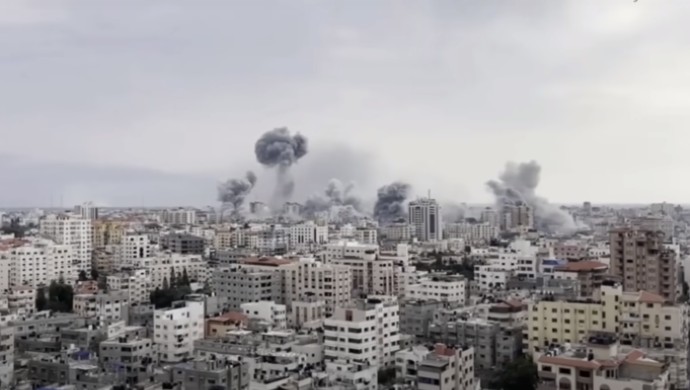

The meeting, which also featured the President-elect of the National Council of Resistance of Iran, Mrs. Maryam Rajavi, focused on the Iranian regime’s role in the Middle East conflicts and its escalating human rights violations.
Verhofstadt, known for his outspoken views, criticized Europe’s approach towards Iran as “far too weak.” He highlighted a pivotal change in the EU treaties, which now allows sanctions against authoritarian regimes to be imposed by a qualified majority instead of unanimity. “This is critical for Iran because my opinion is that Europe is far too weak in its approach to this criminal regime in Tehran and in Iran, far too weak,” he said.
During the meeting, Verhofstadt emphasized the limited impact of the current sanctions, noting, “There are only something a little bit more than 200 people, Iranian people who are responsible and have been put under sanctions by the European Union, while already the Revolutionary Guard in itself is a terrorist organization and should put, everybody who is a member of it, active in it under the misanction regime.”
He also addressed the broader implications of Iran’s actions, both internally and externally. “Internally they are oppressing a whole population. And externally they are destabilizing half of the world,” Verhofstadt asserted.

The MEP also vowed to call for a parliamentary debate with Josep Borrell, High Representative of the European Union for Foreign Affairs and Security Policy, to reassess the EU’s stance on Tehran. “We need to develop policies, we need to put a far more package of sanctions on the table to stop and to change this regime,” he stated, signaling a shift towards a more proactive and stringent policy against the Iranian regime.
Verhofstadt’s call for action reflects a growing sentiment within the EU Parliament towards a firmer stance against Iran, especially in light of its human rights record and destabilizing activities in the region. The meeting marks a potential turning point in EU-Iran relations, with significant implications for the future of diplomatic and economic interactions between the two.

MEK Iran (follow us on Twitter and Facebook), Maryam Rajavi’s on her site, Twitter & Facebook, NCRI (Twitter & Facebook), and People’s Mojahedin Organization of Iran – MEK IRAN – YouTu







